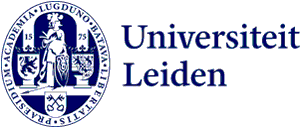
Busy yet not a student in sight: the Online Master’s Open Days
‘Silence in the corridor please’ are not the words you expect to hear on an open day attended by 5,000 students. From 12 studios in Leiden and The Hague, presentations are given during the Online Master’s Open Days telling students all about their future master’s programme.
Between the 45-minute presentations on Thursday and Friday the corridors of Leiden’s ECC event centre are momentarily a hustle and bustle with laptops being installed, cameras set up and presentations gone through one last time. Then the doors close, the cameras switch on and the corridors are quiet once again.
Lecturers, programme coordinators and master’s students tell prospective master’s students about their programme and answer a lot of questions. These are mainly of a practical nature: ‘Can I combine the programme with another master’s?’ ‘Can I do this master’s with my qualifications?’ ‘What are my job prospects?’
Master’s Open Day: 14 February
Another open day is planned for 14 February, this time in person. At the Master’s Open Day you can find out all about the content of our master’s programme, your job prospects and why you should choose Leiden University. Talk to students, alumni and lecturers and ask them all your questions about studying in Leiden and The Hague. More information and registration.
‘Leiden University has never had an economics programme in its almost 450 years of existence’
Inequality, climate and technological change
Public Sector Economics is a new Dutch-taught master’s programme. ‘We have never had an economics programme in Leiden University’s almost 450 years of existence’, says Jim Been, programme director from the Economics Department. ‘We only provided economics courses for other programmes.’ But from next year both a bachelor’s and a master’s in economics are starting in The Hague. And he is clearly proud of that.
The new master’s is very close to the policy world, Been explains. ‘The programme responds to questions from ministries, policy agencies and other public players. They have noticed a gap between recent economics graduates and what they need to have an immediate impact in such an organisation. Our graduates are the policy economists of the future.’ The programme will therefore pay a lot of attention to current issues such as inequality, the climate and technological change.
The programme is not just theoretical: students also debate, write policy papers and practise conversations that involve negotiation. ‘You’re basically a ready-made policy economist when you’re done.’
A master’s in teaching
The two-year Dutch-taught Master’s in Primary Education is fairly new. The third cohort of students started in September on this programme that is a collaboration between Leiden University, University of Amsterdam and VU Amsterdam. ‘You can become a primary school teacher with this master’s’, explains Anne Helder who coordinates the programme in Leiden. During the programme students acquire a lot of knowledge, which enables them to respond to the rapidly changing needs in primary education.
Students from different backgrounds can enrol on the programme, although some may need to take an extra course. ‘Everyone is more than welcome because it’s good to use different expertise in the programme. And fantastic for education of course.’
‘Looking at the wider perspective helps you understand what shape the healthcare of the future should take.’
Understanding healthcare bottlenecks
Student Rochnie Noëlle Booij is doing a part-time Master’s in Health, Ageing and Society alongside her Master’s in Personalized Medicine at VU University. She explains how she is finding the programme. ‘I’ve realised there are rather a lot of complex challenges within healthcare, and mainly in geriatric care. If I am going to work as a medical professional, I want to understand where the challenges and bottlenecks lie. I also want to know more about the perspective of elderly people.’
The programme looks in more depth at what happens in the body as it ages and how healthcare is arranged at home and abroad. There are also classes on the perspective of the elderly, where students learn what elderly people face and what they consider important. ‘Looking at the wider perspective helps you understand the challenges in healthcare and what shape the healthcare of the future should take.’
More people needed in crisis and security field
Crisis and Security Management is the second largest master’s programme at Leiden University. Unsurprising perhaps because it is about topics that have become increasingly important in recent years. ‘There are many crises in the world’, says assistant professor Ernst Dijxhoorn. ‘The climate crisis and its effects, for instance, and the recently drastically deteriorated international security situation. It is increasingly seen as a security issue even though it isn’t actually a crisis. All reasons why the crisis and security management field has exploded.’
And many different organisations need crisis and security professionals. Students on the master’s programme can choose one of the six specialisations. ‘Open days like this are really important for us because we want students to make a well-informed decision’, says Dijxhoorn.
Text: Dagmar Aarts
